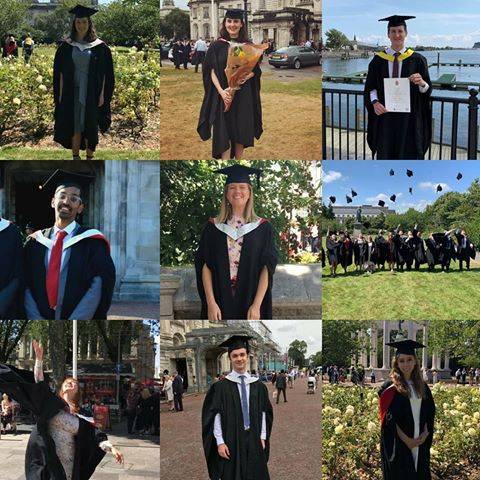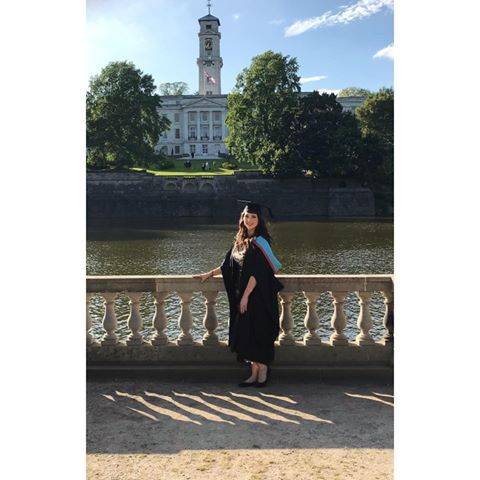沟通之前:希望您能花,三到五分钟的时间,观看我们的视频,对我们的能力,有一个初步判断。
阿萨巴斯卡大学毕业照展示

近年来,许多欧洲国家的阿萨巴斯卡大学阿萨巴斯卡大学经费有了显著的变化,主要是从以某些职能(如人力资源、设施和特定项目)为基础分配公共资金的项目预算制度转变为政府提供资金的计划。
阿萨巴斯卡大学可以选择使用的P和。
但下一步该怎么办?欧洲阿萨巴斯卡大学协会最近的一项研究显示,虽然高等教育机构仍主要由国家资助,根据欧洲阿萨巴斯卡大学联合会(EUA)的规定,这应该有所增加,但自治程度提高的机构本身应该通过其他途径扩大其收入基础。
EUA说,资金问题以及如何增加和多样化它是欧洲阿萨巴斯卡大学的重中之重。
它敦促机构在寻求替代性收入流时采取更多类似企业的观点,并说资金和融资应该纳入机构的总体战略。
阿萨巴斯卡大学管理网络,博洛尼亚阿萨巴斯卡大学和巴伐利亚州立高等教育研究和规划研究所。
这个项目是由欧洲委员会在终身在阿萨巴斯卡大学学习计划下共同资助的。
在今年的第一阶段,EUDIS将通过问卷评估欧洲阿萨巴斯卡大学收入多样化的状况,并随后确定最佳做法。
它还将促进“关于资金问题的机构视角,以便向国家和欧洲决策者告知如何最好地促进收入流的合理多元化”。
“如果你依赖一种或数量有限的资源,那么如果有一种资源,你将陷入困境。
”EUIS主管EUA的高级项目经理Thomas Estermann说。
我们认为有必要使你的收入多样化。
它并不总是意味着从公众到私人的转变,也可以看到不同的来源。
但是,很难确定一个最优的扩展范围,因为它与国家背景和阿萨巴斯卡大学的概况有很大关系。
“埃斯特曼说,阿萨巴斯卡大学的自治与其收入的多样性之间似乎有联系。
在大多数欧洲国家,分批拨款制度很普遍,但阿萨巴斯卡大学正开始探索其他形式的公共财政。
EUDIS的调查可能确定尚未充分探索的筹资可能性,这些可能性将在明年第二阶段通过利益攸关者访谈和其他手段加以开发。
Aln.OsBurn@ UW-NeWS.com

The Agence Universitaire de la Francophonie, or AUF, has launched two higher education initiatives aimed at French-speaking African and other developing countries.
They are to introduce massive open online courses, or MOOCs, in partnership with the Swiss École Polytechnique Fédérale de Lausanne, and to establish an ‘equality for women’ network to counter gender discrimination in universities.
The agency has also extended to Senegal a distance teacher-training venture to improve the skills of schoolteachers of, and in, French.
The AUF promotes higher education and research in French-speaking universities throughout the world.
It has headquarters in Montreal in Quebec, Canada, and links 800 institutions in about 100 countries.
The projects were presented in November in Dakar, Senegal, at the 15th Summit of the Organisation Internationale de la Francophonie, or OIF, a Paris-based association of 77 French-speaking countries.
MOOCsDuring the summit the AUF and the Swiss École Polytechnique Fédérale de Lausanne, or EPFL, signed an agreement to cooperate in the development of MOOCs in partnership with institutions in emerging countries.
Under the agreement the AUF and EPFL aim to improve access to online higher education, improve its quality and strengthen institutions’ educational capacities.
According to the AUF they will: Develop new forms of collaboration for the production of MOOCs in partnership with universities in emerging countries.
Develop training for MOOC tutors in regions of Africa, Asia, the Caribbean and Middle East.
Devise a certification system for MOOCs so examinations can be organised through the agency’s network of campus numériques francophones – digital francophone campuses.
Promote the broadcast of French-language courses, especially those of the AUF, EPFL and members of the Réseau d’Excellence des Sciences de l’Ingénieur de la Francophonie, or RESCIF.
EPFL has been developing MOOCs since 2012, and currently has 21 courses on offer, 13 of them in French.
Some have been designed to cater for needs of emerging countries, such as those on town planning and healthcare systems.
Bernard Cerquiglini, AUF’s head, said: “MOOCs are truly complementary to transitional teaching, and represent a major challenge for the French-speaking university world, especially in the South where there are large numbers of students.
“This agreement with EPFL expresses our ambition for the development of this new pedagogic form of higher education in the institutions of the South, anxious to take part in this digital revolution currently underway.
”Equality for womenThe AUF has created a French-language network of women working in higher education and research from North and Sub-Saharan Africa, the Middle East, Europe and the Americas to improve access to posts of responsibility for women academics.
According to the agency, even in countries where equality between women and men is accepted, the proportion of women in senior positions remains low – only 23% of professors in France, Canada, Belgium and Vietnam are women, and the situation for women in top posts such as university president or rector is worse; they ranked highest in Canada, at 19%.
The network was officially launched at a pre-OIF summit conference organised by the AUF in Dakar on ‘Women Academics, Influential Women?’ in favour of gender equality in higher education and research.
It was attended by 200 participants from all over the world including women lecturers, researchers and senior managers, and women working in business.
The AUF said the event constituted a first step towards concrete action in favour of gender equality in higher education and research.
Participants approved 10 recommendations, which were presented to heads of state during the OIF summit.
These were to: Train political and public service managers in equality issues.
Create departments of women-men equality in ministries of higher education and research.
Set up observatories of gender equality in every university and appoint specialist staff.
Provide training modules to support sex-equality awareness at all levels and in all disciplines.
Legislate to ensure parity in senior posts at universities and research organisations.
Finance research to produce scientific data on the situation of women in higher education and research.
Coordinate all research projects with an ‘equality’ dimension.
Create a directory of good practices on parity in universities.
Universities to set up dedicated offices to prevent and fight against sexism and sexual violence, with punishment for all cases of sexual harassment.
The pre-OIF conference also called on the AUF to strengthen the French-language network of senior women in higher education and research; create a prize for women scientists; introduce a gender equality requirement in the AUF members’ charter; create a high quality French-language scientific publication; and set up an ‘equality’ label for universities.
Distance teacher trainingAUF and the OIF jointly manage the Initiative francophone pour la formation à distance des maîtres, or IFADEM, to improve primary schoolteachers’ skills in teaching French, especially in rural areas.
After its pilot between 2008 and 2010 in Benin, Burundi, Haiti and Madagascar, it has been progressively extended to cover new subjects, regions and countries.
The latest is Senegal, following an agreement signed in November in Dakar between Senegal’s Education Minister Serigne Mbaye Thiam, OIF administrator Clément Duhaime and AUF’s Bernard Cerquiglini.
IFADEM offers in-service training partly online, adapted to the needs of the teachers and their work and living conditions.
In Senegal, 500 teachers will take part in IFADEM, for which they will be provided with digital tablets giving them access to resources such as dictionaries and course notes.
